Do you have plans to visit Paris next summer? The highly anticipated 2024 Olympic Games in Paris have sparked global excitement, attracting tourists from every corner of the earth who are eager to be part of this unique occasion. Although it’s easy to be captivated by the magnificence that is the City of Light and exhilarated by real-time sporting events, it becomes even more important for tourists to prioritize personal safety throughout their stay during Olympics.
It’s no secret that Paris, known for its beauty and captivating history and culture, welcomes millions of tourists annually and for good reason. With the surge of sports enthusiasts arriving for the Olympics, it’s crucial to remain vigilant, stay informed about local conditions, and follow safety guidelines. With that, let’s get into it!
Understanding Paris’ layout
Districts and landmarks
Paris is divided into 20 districts, known as arrondissements, which are numbered in a clockwise pattern from 1 to 20, starting in the city center. Familiarizing yourself with key landmarks such as the Eiffel Tower, Louvre Museum, La Seine, and the Notre-Dame Cathedral will help you get your bearings within the city.
Here are some central arrondissements and their popular attractions:
- 1st: Louvre Museum, Palais-Royal
- 3rd & 4th: Le Marais, Centre Pompidou
- 5th: Latin Quarter, Panthéon
- 6th: Saint-Germain-des-Prés, Luxembourg Gardens
- 7th: Eiffel Tower, Les Invalides
Public transportation networks
France’s capital has an extensive and efficient public transportation system that includes buses, trams, and two types of city trains, the Metro and the RER (Réseau Express Régional). The Metro is the most convenient way to get around the city, with over 300 stations connecting 16 different lines that cover most tourist destinations and beyond.
Here’s a quick overview of the most relevant public transportation options for tourists:
- Metro: Fast, reliable, and frequent service within Paris and nearby suburbs. Metro tickets also work on buses and trams.
- RER trains: An express train system that connects central Paris to suburbs, airports, and other key destinations such as Disneyland Paris and Versailles. RER tickets are separate from Metro tickets and can also be used on buses and trams.
- Buses: Slower but definitely the more scenic option to get around the city. Limited schedules at night.
- Trams: Useful mostly in the eastern and southern suburbs, with limited coverage within central Paris.
- Vélib’ bicycles: A fantastic way to explore Paris with over 20,000 bikes available for rent at 1,400 docking stations throughout Paris. They have both regular and electric bikes available.
A quick word on mass transit: A common mistake I see tourists make all the time is forgetting to validate their tickets, so always make sure to do this and that way you’ll avoid potential fines. Transit employees do sometimes check passengers’ tickets once onboard. Also, don’t throw your ticket away once you’re onboard either. You’ll need to scan it to exit some stations.
Staying safe in crowds
Pickpocketing hotspots
While enjoying the Paris Olympics, it’s so important to be aware of pickpocketing hotspots. Keep your personal belongings secure, and be cautious of suspicious behavior. Some common areas where thieves operate include:
- Public transportation (metros, buses, etc.)
- Popular tourist attractions (Eiffel Tower, Sacré Cœur, Louvre, etc.)
- Crowded streets and shopping areas
Stay extra vigilant in these areas and keep personal belongings secure. The best way to do that is to use an anti-theft bag and not a regular old backpack or purse. Also, leave your expensive jewelry at home.
Use an anti-theft bag or backpack
Trust me, it is absolutely worth your while to invest in a quality anti-theft bag or backpack to secure valuables. Here are some features anti-theft bags have that will keep your things safe:
| Feature | Benefit |
|---|---|
| Lockable zippers | Prevents unauthorized access |
| Slash-resistant material | Protects against bag cutting |
| RFID-blocking pockets | Protects personal information |
Using an anti-theft bag can give tourists peace of mind while navigating the bustling city. My favorite brand for this is Pacsafe. Not only do they have anti-theft backpacks and large bags with the features above, but they have smaller accessories like wallets and stylish purses so you can have peace of mind when you’re out and about. My Pacsafe backpack has been all over the world with me and is still going strong over five years later.
Avoiding scams
Scammers use various tactics to take advantage of unsuspecting tourists and they work. Here are some tips for avoiding scams:
- Be cautious when approached by strangers offering help or deals. Don’t sign any petitions or let anyone place a bracelet on your wrist. If something sounds fishy, it probably is a scam. Politely say no thanks and move on.
- Research common scams before arrival so you’re better prepared for what you might encounter.
- Only use licensed taxis or trusted transportation services and ride-share apps.
- Verify ticket prices and purchase from official sources and make sure that’s what you’re actually being charged.
By staying informed and cautious, tourists can better protect themselves from scams and enjoy a worry-free visit to the Paris Olympics.
Health and medical emergencies in France
Pharmacies and hospitals
When in France, you’ll want to be prepared for health and medical emergencies. Pharmacies are widely available throughout the country and will typically display a lit up green cross sign out front. Go to one for all medication including over-the-counter treatments, as you won’t find them at a grocery store.
In French cities, including Paris, there’s usually at least one pharmacy open late or even 24/7. To find the nearest pharmacy, you can ask locals for directions or search online using the term “pharmacie de garde Paris.” If you fall ill in France, check out my post all about French equivalents of common American medications and other info you need to know about French pharmacies.
On the other end of the spectrum, hospitals in France are well-equipped to handle emergencies and provide care in line with the care you’d expect to receive in the U.S. It’s important to note that American insurance from home won’t be accepted, so it is advised to carry travel insurance. More on that below.
Emergency contact numbers
In case of an emergency, knowing the right contact numbers will be critical. Here is a list of important emergency contact numbers in France:
- 15 – Medical Emergencies (SAMU)
- 17 – Police
- 18 – Fire Department (Pompiers)
- 112 – General European Emergency Number
These numbers are toll-free and can be accessed 24/7. Remember to store them on your mobile phone for easy access in case an emergency occurs while in France.
Purchase travel insurance
Visiting Paris during the Olympics is an exciting experience, but it’s key to prioritize personal safety, and that includes considering travel insurance. I can’t stress enough how important it is to make sure you have travel insurance in case the unexpected happens. No one expects anything bad to happen, but when it does, you’ll be so glad you bought travel insurance. It’s a small price to pay for peace of mind.
Depending on your plan and your particular needs, travel insurance can cover medical expenses, trip protection, and even personal belongings often for just a couple of bucks a day.
Here’s a quick rundown of why buying travel insurance is highly recommended:
Medical emergencies
You never know when a medical emergency might occur and having travel insurance ensures that you are covered in case of accidents, sudden illnesses, or any other health-related incidents. With travel insurance, you can receive appropriate medical care without facing outrageous expenses, and some insurance policies even offer emergency evacuation in extreme circumstances.
While medical care in France is much cheaper than it is in the United States, a hospitalization or surgery will not be free for a foreigner.
Trip protection
Unforeseen events, such as flight cancellations, terror attacks, natural disasters, and trip interruptions, can occur when traveling abroad. To avoid the financial burden of unexpected changes, travel insurance with trip protection can save the day and your wallet. This coverage often compensates for non-refundable pre-paid travel expenses, like accommodations and event tickets.
Personal belongings
Paris, like any major city, has its share of pickpockets and thieves. Travel insurance that includes coverage for personal belongings can ease the stress and financial loss if your belongings are stolen or damaged during your visit.
Still unsure if you need travel insurance? I’m of the mindset that it’s better to be safe than sorry. Consider these points to help you make an informed decision:
- Medical coverage: Does your current health insurance offer coverage while traveling abroad? If so, what exactly do they cover and are you responsible for upfront costs? If you’re not covered, travel insurance is a smart choice for avoiding exorbitant expenses.
- Budget concerns: Weigh the cost of travel insurance against the potential financial risks mentioned above. You might find it’s a small price to pay for significant peace of mind.
- Stress: Is not having travel insurance going to stress you out more and get in the way of enjoying your trip? Do you have any current health issues that could flare up while traveling?
Purchasing travel insurance before your Paris Olympics adventure is a smart decision. It not only provides coverage during medical emergencies but can also protect against unexpected trip interruptions and recouping costs if your personal belongings are stolen. Make sure to research various policies and choose the one that best fits your needs.
One company I’d recommend for travel insurance is Safety Wing Nomad Insurance. They cover travelers from all over the world when they’re outside their home country. Embark on your trip knowing that Nomad Insurance has your back.
They offer coverage and 24/7 assistance for unexpected illness or injury, including eligible expenses for a hospital stay, doctor’s visit and prescription drugs. In addition, you get emergency travel-related benefits too such as evacuation from local unrest, an unplanned overnight stay, and lost checked luggage.
Safety Wing’s new Nomad 2.0 product features a seamless claims process that is completed with five days and funds wired directly to your bank account within a week. They also offer add-ons for adventure sports if that’s your thing and electronic theft. For those of us who travel with several electronic devices, the electronic theft add-on is particularly useful. It offers up to US$1000 of coverage for electronics with a US$3000 limit per year.
In addition, their policy page is newly revamped and features a more user-friendly experience that makes deciphering your coverage super simple. Check out Safety Wing’s Nomad Insurance here and travel worry free.

Photo credit: Depositphotos/konstantin32
Culture and customs awareness
Local laws and regulations
When visiting Paris for the Olympics, it’s essential to be aware of local laws and regulations. Here are some laws to keep in mind:
- Smoking is prohibited in enclosed public places including museums, monuments, theaters, and restaurants.
- Marijuana is illegal.
- Do not cross the street when the pedestrian light is red. Wait until it’s green and safe to cross.
- Refrain from littering or spitting.
- Drunk and disorderly conduct in a public place is prohibited.
Social etiquette
If you’ve never been to France, some of the French cultural norms may surprise you. Being familiar with social etiquette can make your experience in Paris enjoyable and less stressful.
The biggest tip I have for you is to greet people with a friendly “Bonjour” during the day and “Bonsoir” in the evening. I’ve written about the importance of bonjour at length so definitely have a look.
It’s also customary to say “Merci” (Thank You) and “S’il vous plaît” (Please) in your interactions.
In the end, knowing these basic etiquette rules will make your trip pleasant and ensure that you create a rapport with locals. You might also want to check out what tourist behavior will get strange looks from the French, what American social norms don’t exist in France, and 77 little differences about life in France.
Digital security
Wi-Fi and cyber safety
While visiting Paris during the Olympics, you’ll definitely want to stay connected with friends and family. However, public Wi-Fi networks can be a major security risk.
To protect yourself:
- Stay on your mobile data plan or if you plan on using public Wi-Fi networks, use a VPN.
- Avoid accessing sensitive information like online banking on unsecured networks.
- Always make sure a business’s network is legit by validating the network name with an employee first before connecting to it.
Additionally, you may come across fraudulent websites targeted at tourists. Protect yourself by:
- Ensuring the website has a secure connection (HTTPS).
- Verify the website’s authenticity by looking for reliable reviews or recommendations.
- Regularly update your computer and mobile device security settings and operating systems.
Protecting personal information
In bustling places like Paris during the Olympics, personal information theft happens both online and physically. Follow these tips to protect your privacy:
- Use strong, unique passwords for various accounts and change them periodically.
- Be cautious of phishing emails or messages related to the event. Don’t click on suspicious links or provide personal information.
- Keep a close eye on your belongings, particularly devices containing personal data, such as smartphones, tablets, and laptops.
By following these digital security guidelines, you can enjoy a safe and memorable Paris Olympics experience.
***
Hope you enjoyed my Paris Olympics personal safety tips. Have a safe and wonderful trip!
Disclosure: This is a sponsored collaboration with Safety Wing Insurance. All opinions are my own.
PIN IT:



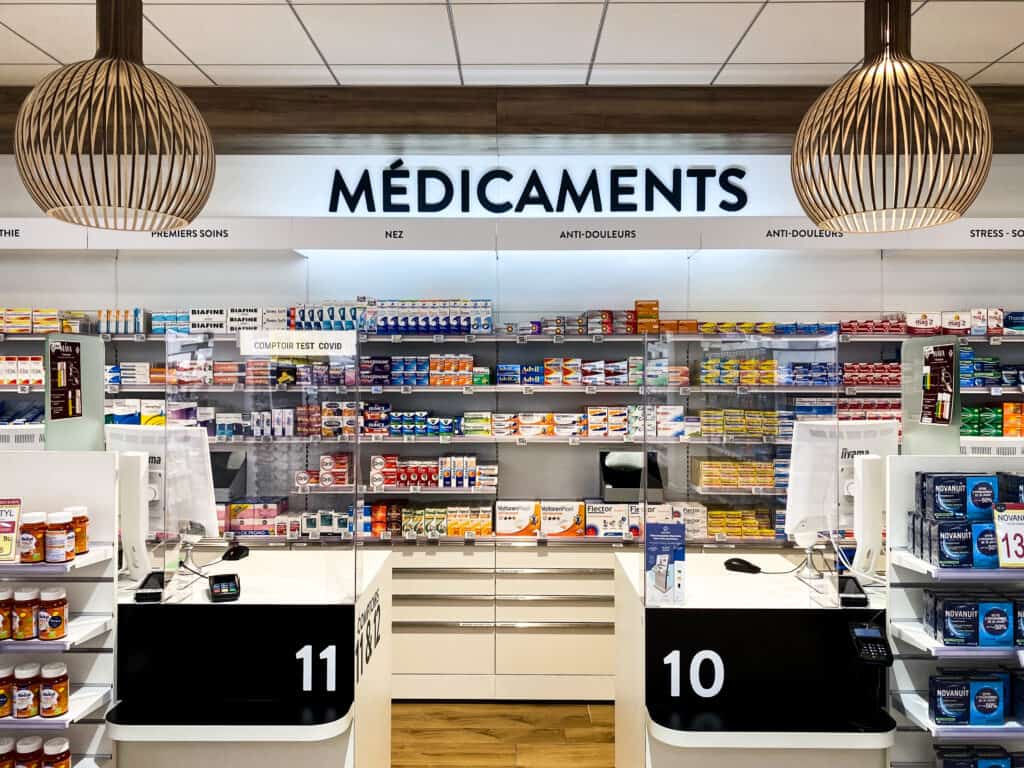



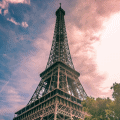
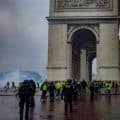
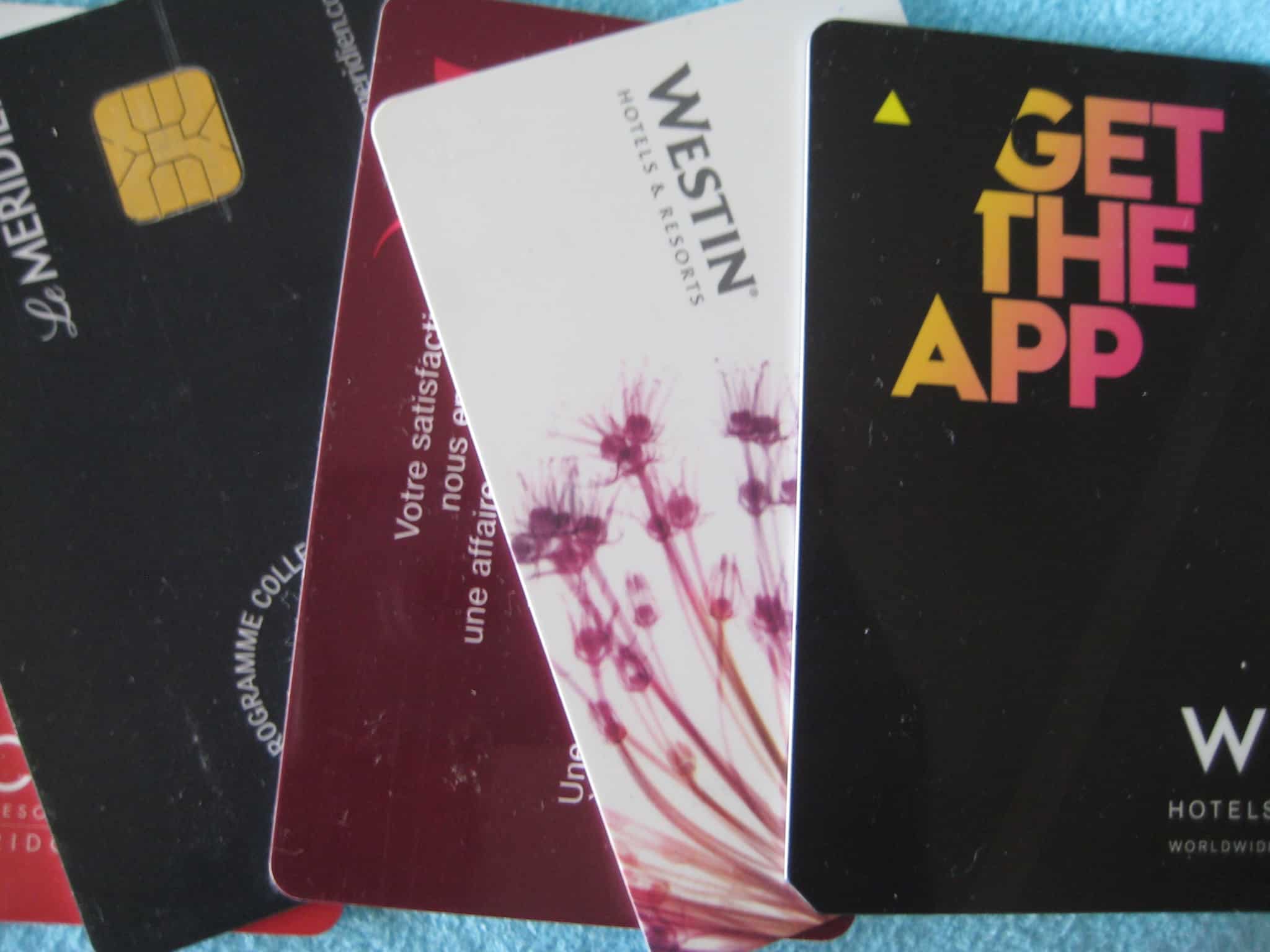
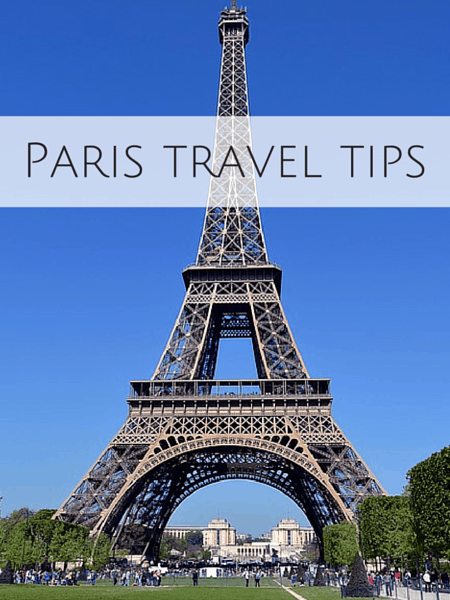

Why bother?
Instead of all the hassle and expenses, ask your friendly locall liquor dealer here in USA if he can get you a couple bottle of Domaine Romanee Conti, and go to your local French Chef owned patisseris and get some artisan bread and a little dessert and go to your local cheese shop (mine has a cute name: “Second Mouse”), and
Shut down your computer. Restart a friendship. The conversation is waiting. Go there. (Grand Marnier)
And maybe watch L’année Dernière à Marienbad or The Grand Illusion after dinner with some (well, I prefer Sapnish, sorry) brandy.
No jet lag. No pickpockets. As Julia Child used to say: “Bon Appetit!”